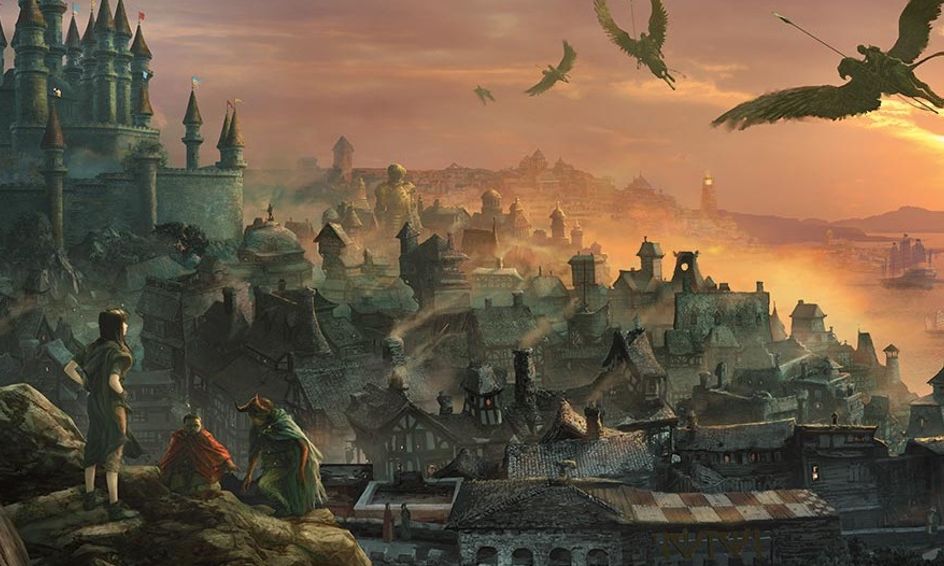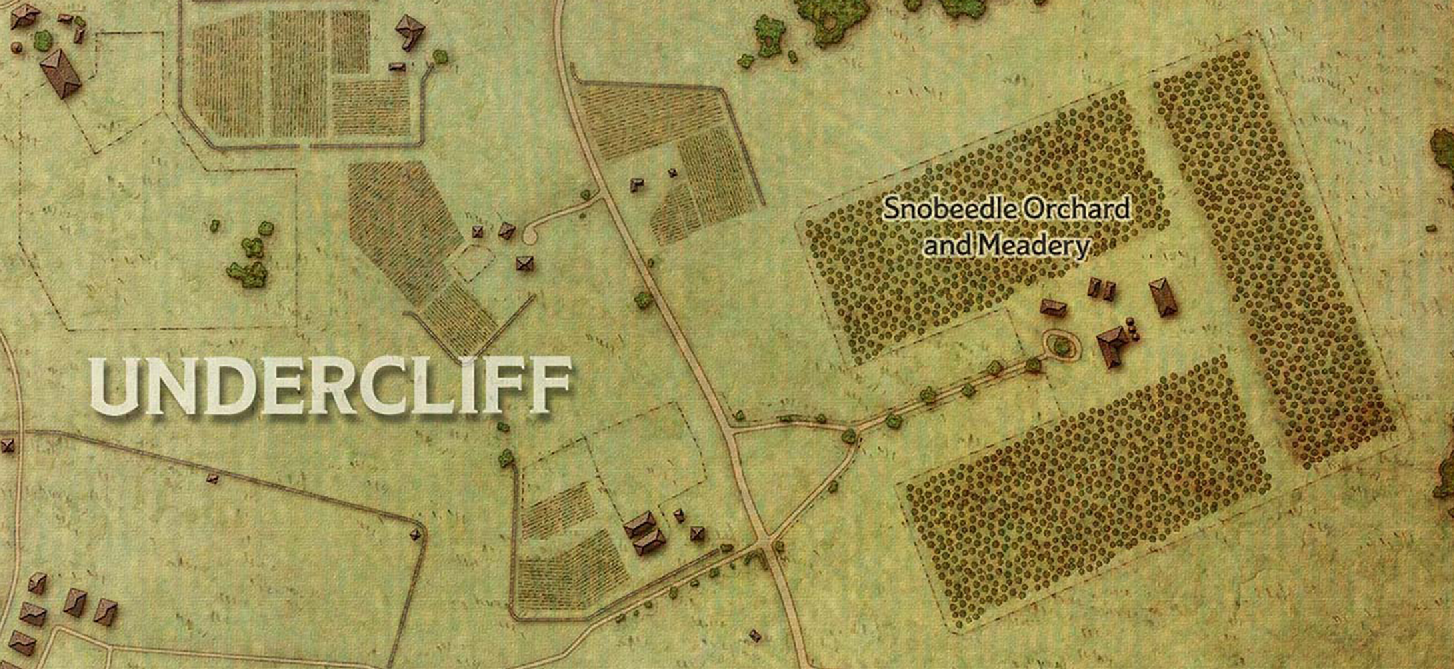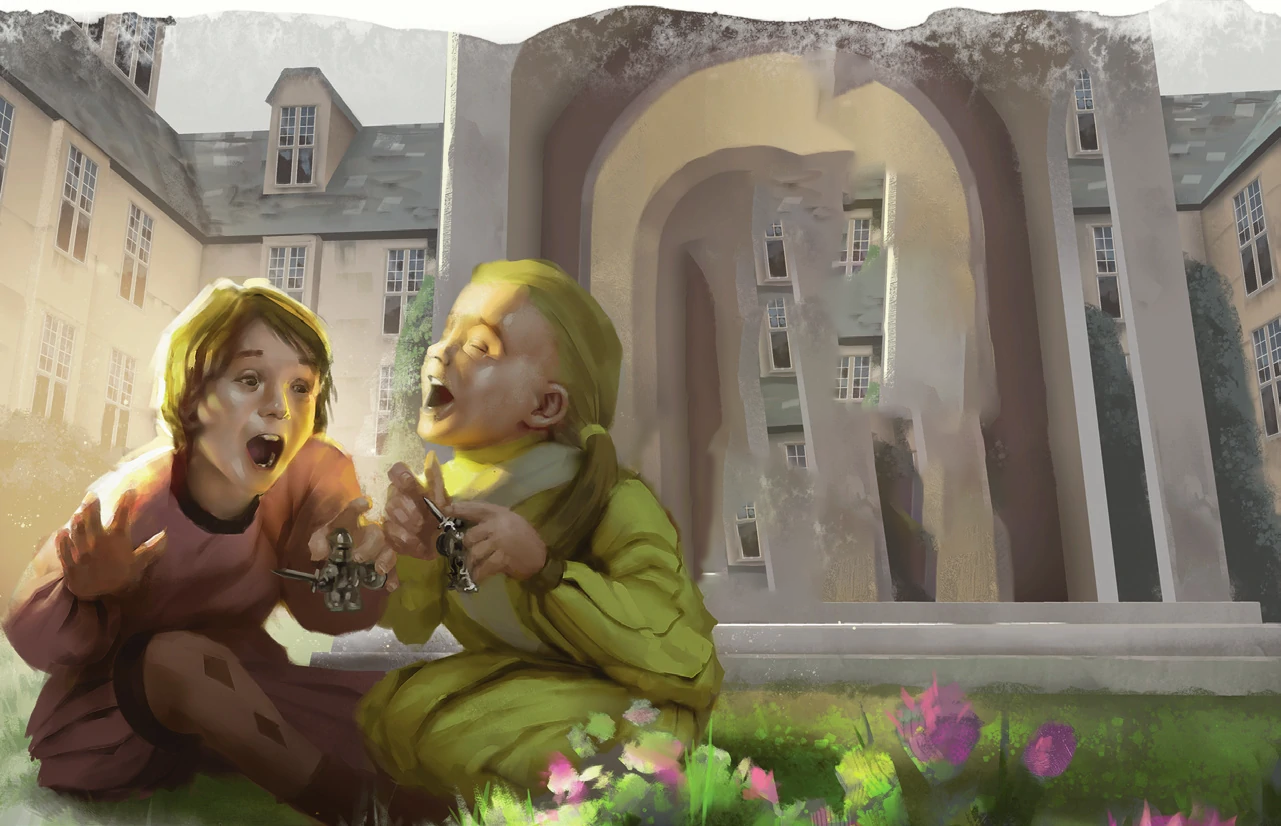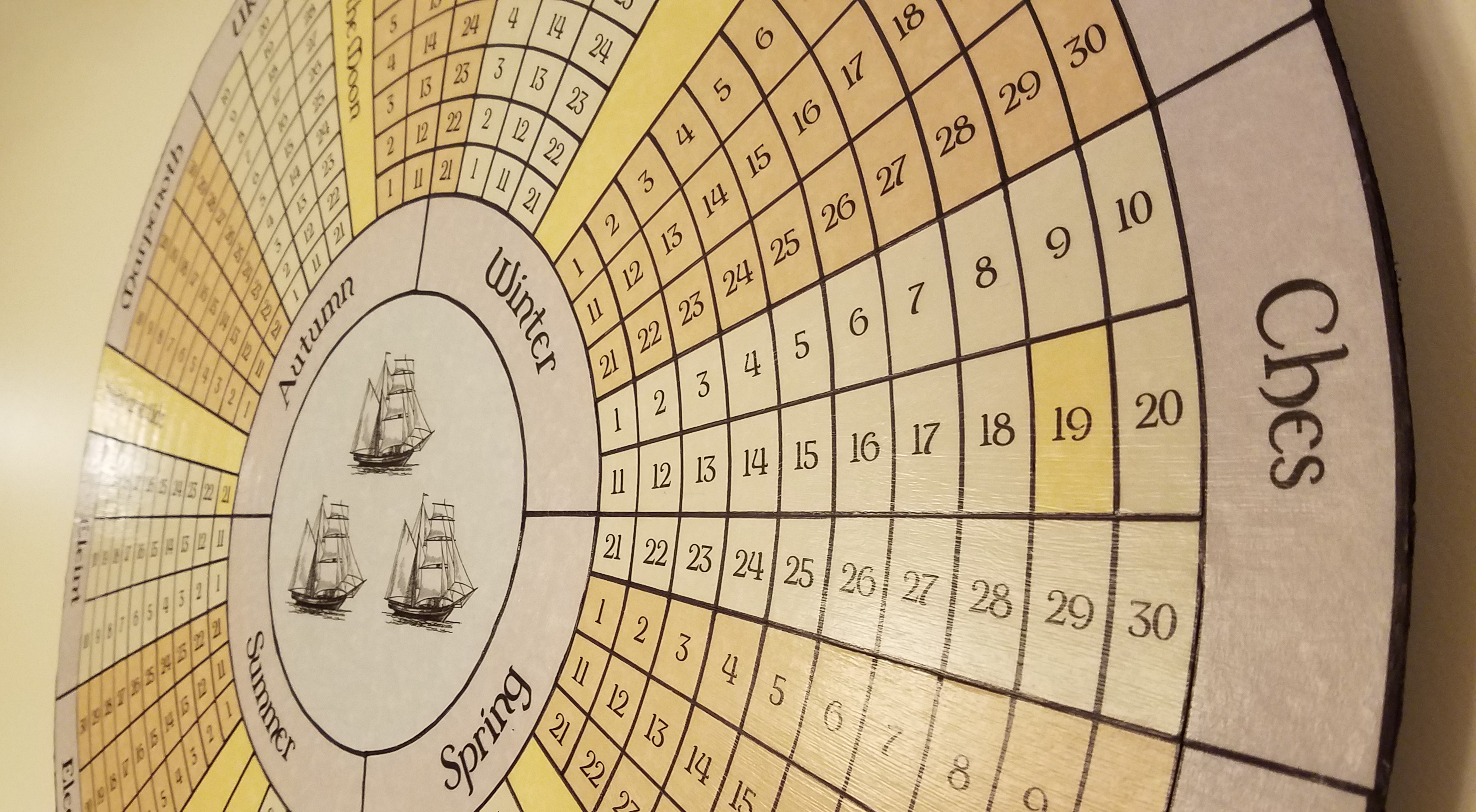In the Railroading Manifesto I talk about how railroading warps player decision-making: “When you systematically strip meaningful choice from [the players], they stop making choices and instead start looking for the railroad tracks.”
Interestingly, GMs who habitually railroad rarely notice this effect, but it becomes glaringly obvious whenever the players they’ve screwed up come and play at my table: “Nothing is more incoherent than a player trying to figure out where the railroad is when there’s no railroad to be found.”
This is a very mild form of what bankuei calls Abused Gamer Syndrome. What these players have learned is that if they don’t preemptively look for the railroad and follow it, then they will be punished: They’ll be frustrated or have their character killed or be made to look stupid or have control of their character forcibly taken away from them or any number of other un-fun things that GMs do to force players back onto the rails.
So when these players are put into a situation where there IS no railroad, they will become increasingly desperate to find it, and they’ll interpret everything through the lens of, “Is this the railroad?” So if, for example, they’ve been trained to look for a GMPC who will tell them what to do and you put them into a scenario with a bunch of different factions who are all demanding that they do different things… it basically drives them nuts.
“We’re doing what the GM is TELLING us to do, but now the GM is telling us to do something completely different?! What the fuck?!”
They’re providing the input they’ve been trained to provide and expecting a certain outcome (a clear-cut track for them to follow), but are instead getting a completely different outcome. The more this happens, the more they flail about trying to find the “solution” that doesn’t actually exist. As their frustration mounts, it’s not unusual for them to feel as if the GM is just maliciously screwing with them (“We’re doing out best! Why is he punishing us?!”) and will begin acting out and even actively sabotaging the game.
In other cases, as we’ll discuss below, the player’s default response to the railroad is always to sabotage it in whatever small ways they can. Even though the railroad doesn’t exist, the disruptive behavior continues… and is probably even more successful because this GM, unlike the ones who railroaded them in the past, will let their actions have consequences!
All kinds of dysfunctional behavior can now result: Some players, feeling rewarded in their disruption and sabotage (because it’s been more successful and had a bigger impact on the game than anything else they’ve ever done!), will now double down. In other cases, GMs who follow where players lead them (because players generally know what they want to do) will lean into this disruptive behavior because it must be what the player wants, right? Except the player doesn’t actually want this! So nobody is happy. And because they’re not happy, the player will act out in the way they’ve been trained is the only viable method of expressing their dissatisfaction and become more disruptive, creating an ever-escalating cycle.
Because I spend a lot of time preaching about alternatives to railroading, it’s not unusual for people to come to me with reports of this type of behavior and say, “See? This doesn’t work! You have to railroad some players because it’s what they expect / it’s what they want / if you don’t they just sit there and don’t do anything!”
Which is, of course, the final trap. The GM is now exhibiting their own form of abused gamer syndrome, usually (but not always) self-inflicted through the medium of their players. (Of course, in some cases GMs saying this sort of thing are just looking to justify what they want to do.)
DESENSITIZATION
Let’s take a step back from these gamers being transferred into games running under different assumptions than the games they’re used to: The GM is running a railroad. The player has been trained to look for the tracks. That’s good, right?
Short answer: No.
Because it turns out that abused gamer syndrome creates other types of unwanted behavior.
DMDavid recently highlighted this on Twitter:
[There are] many places in Descent Into Avernus where the PCs must follow leads with no reason to believe the route brings them closer to their goal. The mod relies on, “We want to keep playing, and we’re told to go hither, so I guess…”
I see new players troubled by such moments more often than us longtime enthusiasts. We should be bothered too, but I wonder if we become a bit desensitized. (…) Do we grow accustomed to just following leads without question?
Instead of acting out or resisting the railroad, these players respond to it by becoming acquiescent. But that desensitization also means that they stop CARING: They don’t care about the NPCs or the lore or even what their objectives are supposed to be. These have all become bits of railroad track whose function is to point them at the next bit of railroad track. They have become divorced from their semantic content and now only serve a structural function.
GMs who relentlessly railroad their players will often crop up complaining that their players don’t care about their game world or their plot or their NPCs or whatever, but don’t understand why these behaviors emerge. They usually think the problem is with the players. (And since all they know how to do is railroad their players anyway, there’s nothing they can really do about it.)
Even more tragic is when this, too, becomes an escalating cycle: As the players stop caring about the semantic content of the game world, the GM also stops caring. The whole thing just becomes an empty loop.
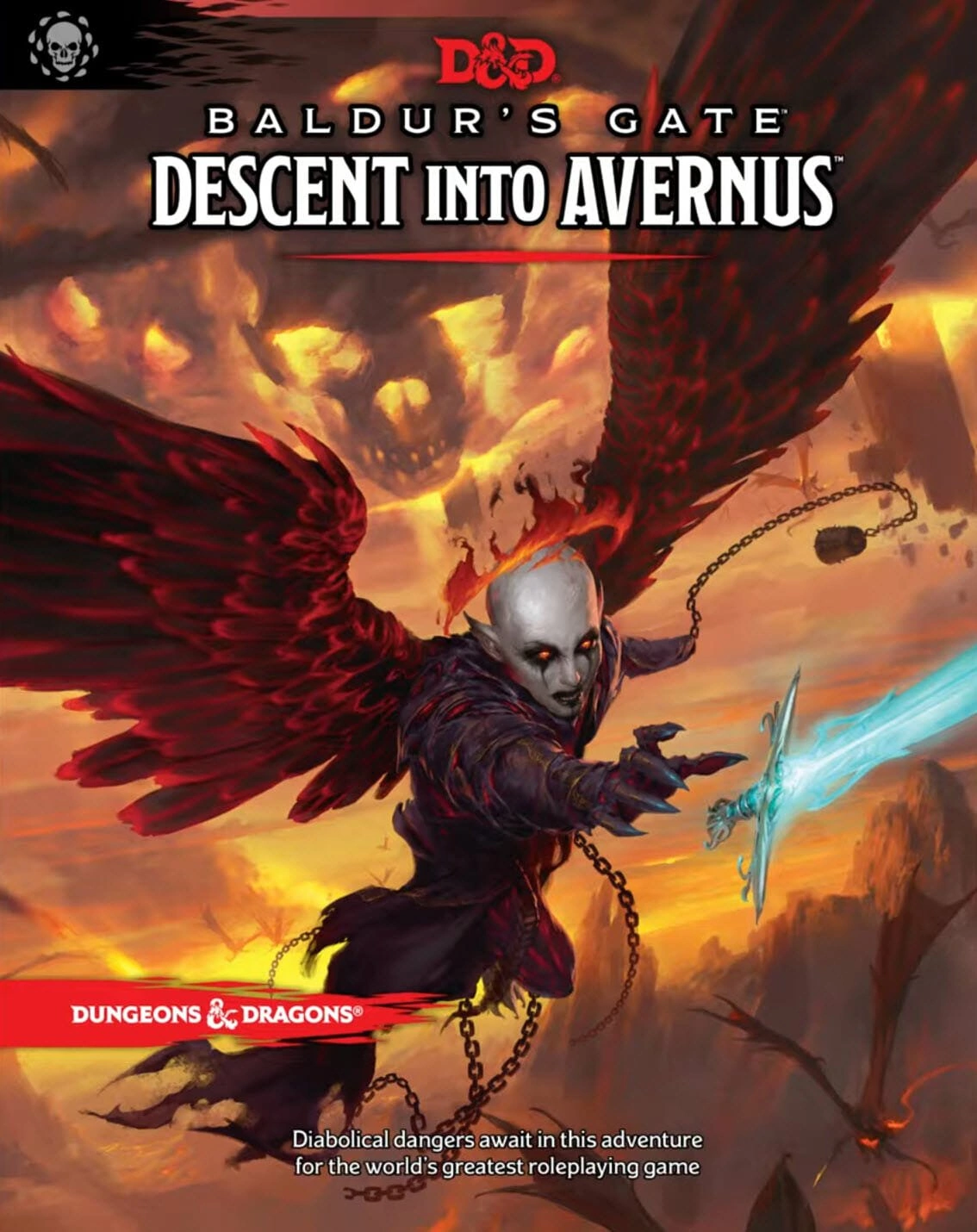 Descent Into Avernus is actually a great example of this. There’s a bit in the adventure where the PCs are trying to help an NPC named Lulu recover her memories:
Descent Into Avernus is actually a great example of this. There’s a bit in the adventure where the PCs are trying to help an NPC named Lulu recover her memories:
- They’re told that they need to go to a specific place and talk to some kenku. “Find the kenku! They knew Lulu back in Ye Olde Days! They’ll have valuable information and help reconstruct some of her lost memories!”
- The PCs go there. They find the kenku.
- The adventure says, “The kenku (…) instantly recognize Lulu, since they’ve met her previously.”
And then… nothing. Literally nothing. The kenku remembering Lulu is never mentioned again.
The problem is that the designers were no longer thinking of the game world as a real place. They weren’t thinking about what the players’ actual experience would be like — what they would be thinking, what they would want, etc. — because their players have stopped having that experience.
So the designers are thinking of the kenku strictly as another McGuffin in the long line of McGuffins that make up this campaign:
- They need a mechanism to move the PCs from Point A to Point B.
- The kenku were that device.
- The PCs are now at Point B.
- Therefore, the kenku are done.
And the kenku are thus immediately dropped.
The designers expect the players to directly transition to the next bit of railroad track without ever asking the kenku about the memories they were supposedly here to ask them about because the designers never actually cared about the ostensible reason the PCs were looking for the kenku. And they assume that the players won’t care either (probably because their players, suffering from abused gamer syndrome, don’t any more).
ACTS OF SABOTAGE
Of course, not all players respond to a railroad by acquiescing. Others will act out, seeking to sabotage the railroad (and the GM) as much as they can. Most of these players will learn that they can’t really stop the railroad from happening, but will still find small ways of declaring their independence and giving voice to their protests.
Examples are legion, honestly, but include stuff like:
- Killing NPCs (if you kill them before they railroad you, you’ll have carved out a small corner of freedom)
- Deliberately undermining whatever “objective” the PCs are supposed to be pursuing, ensuring its failure (the GM will usually negate this, but at least they made him work for it)
- Ignoring prompts until they’ve been forced down their throats
- Challenging illusionism by taking random, contradictory actions
- Provoking intra-party conflicts
And so forth. These behaviors will often be propped up by an array of secondary techniques. A common one is to create a half-crazed/anarchic character concept that can be used to “justify” whatever other actions the player is taking. (That way they can blame the character for “making” them play that way.)
SEEKING REFUGE
Instead of acting out, other players will identify the parts of the campaign where they do have freedom, seek to expand those elements of the game, and put their overwhelming focus on them.
A really common example of this is combat: Even lots of GMs who railroad everything else in their game will nevertheless “let the dice fall how they may” in combat. The rigid mechanical structure of combat paradoxically creates a zone of freedom where the players are free to choose their own actions and see those actions have meaningful consequences.
A similar impulse also drives a fair amount of rules lawyering: When you don’t trust the GM, the rules are seen as a way of either controlling outcomes or, just as frequently, providing the neutral arbiter that the GM should be.
Provoking intra-party conflicts, in addition to being a form of sabotage, can also be a way of seeking refuge, because PC-to-PC relationships is another area where otherwise railroady GMs will frequently become hands-off.
OTHER ABUSED GAMER SYNDROMES
I want to emphasize that these behaviors are usually not conscious choices. Players aren’t often literally thinking, “Well, if he’s going to railroad me, then I’m going to kill his NPCs.”
Railroading is also not the only negative behavior that can result in abused gamer syndrome. I’ve focused on it here because railroading is so common in RPG circles that it’s basically institutionalized gaslighting at this point, so it’s a touchstone almost everyone can grok, but there are definitely other behavior patterns that result from people’s bad experiences at gaming tables. (And behavior patterns that you’ll create if you’re creating those bad experiences.)
Another common one, for example, is the player who has been “trained” to just passively sit at the table and rarely contribute creatively because their previous tables (GMs and players alike) systemically rejected and ridiculed their ideas. I used to see A LOT of female gamers suffering from this problem because their entire gaming experience was with tables full of misogynists. (Thankfully, this seems to be less common now, although it obviously still happens.)
FIXING THE PROBLEM
So what should you do if you find a new player at your table exhibiting abused game syndrome?
Honestly, it mostly just boils down to having a frank discussion with them to reset expectations.
In extreme cases, however, this won’t work because they won’t believe you. Often they’ll have actually had GMs who said the same thing and then ruthlessly railroaded them, so why would you be any different?
(Ironically, some of the worst GMs for this are those who honestly don’t want to run a railroad, but have no idea how to prep or run anything other than a railroad. They’ll say stuff like, “There’s a plot, but you’re free to do anything you want!” But because the plot is all they know how to prep, everywhere else the PCs go they just find blank walls and vast empty expanses of boringness. This still feels like punishment to the players. Worse yet, because the GM is trying to give them “freedom” to “do whatever they want,” he is no longer giving them the usual prompts and pressure to keep them on the rails, so these bad situations paradoxically become more common!)
At this point, all you can do is run your game honest and true.
Port mortems can also be useful, where you pull the curtain back a bit so that you and the players can chat about what happened in the game, why it happened, and how it could have gone differently.
You may also find it necessary to interject yourself more aggressively into the metagame in the middle of a session. For example, when a player begins openly talking about how they’re being railroaded or speculating about “what the GM wants us to do” you may need to step in and literally say, in that moment, “That’s not how this works.”
Similarly, if other bad behaviors are the problem, be prepared to step in and protect the players’ interests if other players are stepping on them. For example, saying stuff like, “I think Beth had an idea. What were you going to say, Beth?” (This doesn’t necessarily mean that the other player at your table is actually doing something wrong! But once a player has been conditioned to respond to certain stimuli, they can overreact to stuff that otherwise wouldn’t be a problem.)
Understand that this is about creating an environment of trust at your table and that trust can be tough for players who have been given no reason to trust in the past.
This becomes easier once you’ve already established this trust with a stable of players, because when a new player joins up and assumes the railroad or other bad behavior is happening, the other players will help push back on those assumptions.
WHAT IF YOU’RE THE PROBLEM?
We often talk about how the first step in solving a problem at your table is to have a frank discussion with your group about it, but first you have to (a) recognize that you have a problem and (b) identify what the root cause of that problem is. Even if you convince your players to stop creating wacky anarchist characters who disrupt the game, for example, if you haven’t addressed why they were creating those characters in the first place, then you’ve likely just moved the problem around. (That player will find a different way of responding to what they don’t like.)
So what if you’ve realized that you’re the one engaging in the bad behavior (railroading, for example) and you want to change the way your table works?
First, make sure you can actually get to the point where you can run your game honest and true. If all you’ve ever run or know how to run is a railroad, it can be hard to figure out how to do things differently. Check out Don’t Prep Plots, Node-Based Scenario Design, and Game Structures for some good places to start.
Second, it’s time to have that frank discussion: Tell your players that you want to change the way your game works. Be specific, not just with what you’re trying to do but also what it will mean for how they play the game. Remember that it’s not enough to just change your own behavior; you need to get your players to change their behavior, too.
I also recommend explicitly empowering your players to call out the bad behavior you’re trying to address. When they do, pause the game and have another frank discussion. Don’t feel attacked in this moment. If it’s happening, cop to it and figure out how to address it. If it’s not happening and the players are just being paranoid, pull the curtain back and explain what’s actually happening.
And, yup, that might disrupt a few sessions. But the long-term pay-offs as you collectively rebuild trust in each other is going to be worth it.


